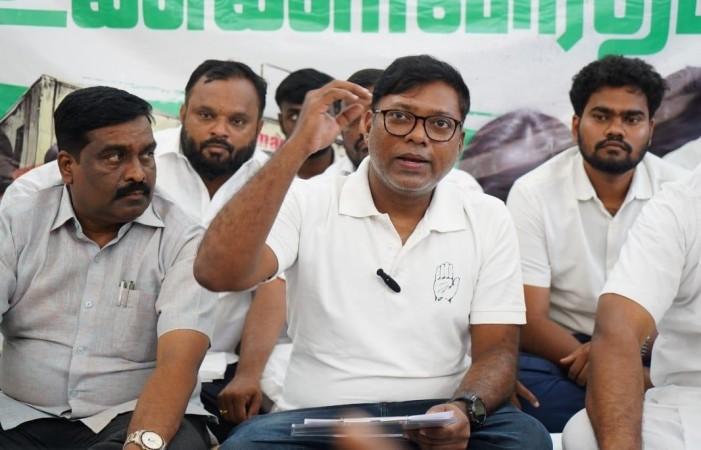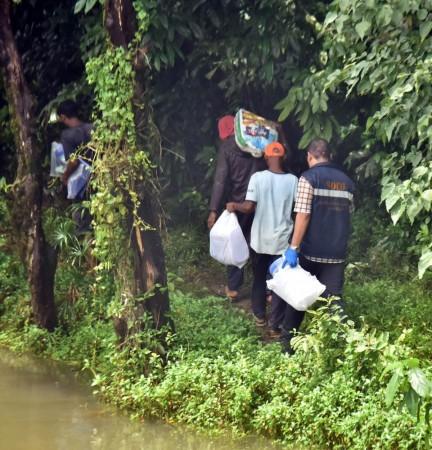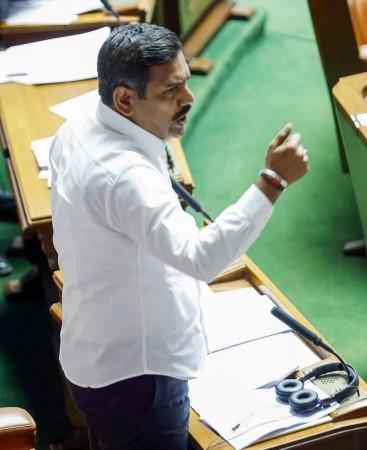
In a significant legal and political development, Tamil Nadu Congress MP Sasikanth Senthil has initiated a defamation lawsuit against BJP MLA Janardhana Reddy in Bengaluru's City Civil Court. This legal action follows allegations made by Reddy, linking Senthil to the controversial Dharmasthala case. Senthil, a former IAS officer from the Karnataka cadre, has strongly refuted any involvement in the case, which has been a focal point of public and media attention.
Addressing reporters at the court, Senthil expressed his frustration over the allegations, stating, "I was keeping quiet, wondering whether I should even react to such childish allegations. But now, every day, a new story is cropping up. I think it is the right time to file a defamation case. I have worked in Karnataka for 10 years. Do you know the person making allegations against me?" His remarks underscore the seriousness of the situation and his resolve to defend his reputation.
Senthil further criticized Reddy, accusing him of tarnishing Karnataka's reputation. "He is the one who looted Karnataka's resources and was imprisoned for seven years. He brought shame to the state at the national level," Senthil asserted. This statement highlights the contentious history between the two politicians and the broader political implications of the case.

Allegations and Denials
The allegations against Senthil revolve around the Dharmasthala case, a complex and unresolved issue involving a mass grave. Reddy has accused Senthil of being the mastermind behind a campaign against the Dharmasthala temple town, claiming that Senthil orchestrated attacks through activists and YouTubers. Reddy alleged, "Sasikanth Senthil is the main person behind the propaganda against Dharmasthala. He had planned a conspiracy when he was serving as the Deputy Commissioner of Mangaluru district."
Senthil, however, has categorically denied these accusations, emphasizing the lack of evidence. "I have not even been allotted a residence in Delhi. Yet they claim that the complainant and others took the skull to my Delhi residence. I don't have any idea regarding the skull in connection with the Dharmasthala case. Probably, Gangavathi MLA Janardhana Reddy knows about it," he remarked. Senthil's denial points to the implausibility of the allegations and the absence of concrete proof.
The Dharmasthala case has its roots in a tragic incident from 2012, involving the alleged rape and murder of a student named Soujanya. Despite public outrage and demands for justice, the case remains unsolved, fueling conspiracy theories and political maneuvering. The controversy has been further complicated by the involvement of various media outlets and social media platforms, which have amplified the narrative surrounding the case.

Political Implications and Historical Context
Reddy's allegations against Senthil also touch upon broader political themes, including Senthil's opposition to certain government policies. Reddy claimed, "The person who opposed Article 370, NRC, and CAA also took part in a convention of the Social Democratic Party of India (SDPI) and issued anti-Hindu statements. Videos in this regard are available." These statements reflect the charged political atmosphere and the intersection of regional and national politics.
Senthil, on his part, has framed the allegations as part of a politically motivated campaign against him. "But, if it is done in a coordinated manner, it will be politically motivated. I am fighting against them in every possible forum, such as political, social media and others," he stated. His comments suggest a broader strategy to counter what he perceives as a targeted attack on his political career and personal integrity.
The defamation case filed by Senthil is not just a legal battle but also a reflection of the deep-seated political rivalries and ideological conflicts in the region. It highlights the challenges faced by politicians in navigating the complex landscape of Indian politics, where allegations and counter-allegations are often used as tools for political gain.
Historically, defamation cases have been a common recourse for politicians seeking to protect their reputations. In India, such cases often serve as a means to address grievances and counteract damaging narratives. The legal framework for defamation in India is governed by both civil and criminal law, providing individuals with avenues to seek redress for harm to their reputation.
Legal Proceedings and Future Outlook
The Dharmasthala case, with its mix of unresolved criminal allegations and political intrigue, is reminiscent of other high-profile cases in India where legal proceedings have intersected with political agendas. The involvement of media and public opinion further complicates these cases, as narratives are shaped and reshaped in the court of public opinion.
As the legal proceedings unfold, the case will likely continue to attract attention, both for its legal implications and its impact on the political landscape. Senthil's decision to pursue a defamation case underscores his commitment to defending his reputation and challenging the allegations against him. It also highlights the broader dynamics at play in Indian politics, where legal battles often serve as proxies for political conflicts.















